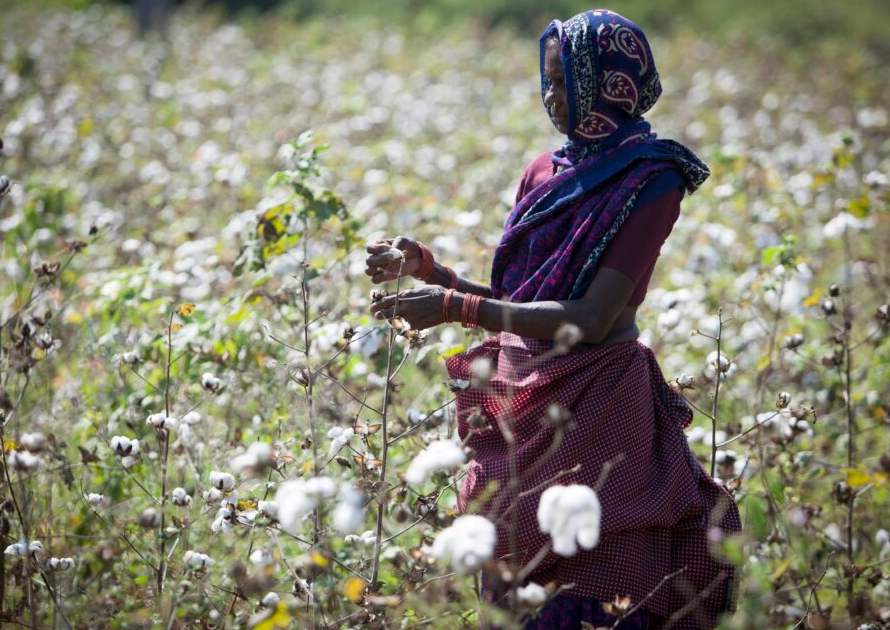
Solidaridad explains the new Sustainable Cotton Hub is a collaborative platform that aims to bring together cotton sector experts, including from its own organisation and PAN UK to improve the cotton sector supply chain.
Its launch follows the 2023 Cotton Ranking and the Cotton and Corporate Responsibility paper which shows brands are making little to no progress towards improving labour conditions in the cotton value chain.
The main objective is to shed light on the sustainability challenges inherent in cotton production and explore the various economic, labour, and environmental factors contributing to them. The hub will also provide recommendations on how major stakeholders can effectively address these critical issues.
The recently published 2023 Cotton Ranking reveals 89% of international brands lack transparency, fail to adopt sustainable practices, and demonstrate minimal progress in improving labour conditions throughout the cotton value chain.
Plus, the “Cotton and Corporate Responsibility” paper marks the first in a series of upcoming publications focused on sustainability in the cotton industry.
According to Solidaridad, both reports show that despite numerous opportunities to mitigate the severe environmental and social impacts associated with cotton production, brands and retailers in the sector are failing to take adequate action. As highlighted in the Cotton and Corporate Responsibility paper, it is within the power of companies to create a world where being a cotton farmer does not equate to a life of poverty.
It believes a solution lies in supporting farmers in adapting to climate change and ensuring they earn a living income. However, this can only be achieved if retailers and brands transform their relationship with cotton farmers, workers, and the entire value chain. To reverse the current course, companies must invest resources and capital in smallholder production, take the lead in their value chains, and collaborate with all stakeholders. Consumer-focused retailers and brands bear primary responsibility for driving change in the unsustainable cotton sector.
“Unsustainable cotton is a choice”
According to Solidaridad, a significant portion of cotton purchased by major companies fails to meet even the basic certification requirements, making it impossible to verify whether the source meets minimal standards.
The Cotton and Corporate Responsibility paper reported only nine out of the 82 largest cotton-sourcing companies globally source 99% or all of their cotton from certified sources. T
While many brands cite complex trade realities as a barrier to progress, the Cotton and Corporate Responsibility paper debunks this argument and provides clear recommendations. These recommendations include investing in smallholder climate adaptation, updating purchasing practices to ensure fair compensation for cotton producers, and adopting transparency regarding cotton sourcing. However, these measures are just the beginning.
“In reality, given the resources available to big brands, unsustainable cotton is a choice. A bad one,” said Tamar Hoek, senior policy director of sustainable fashion at Solidaridad Europe.
“But it doesn’t have to be one we live with. Brands and retailers can make new decisions. They can choose to be more transparent in their operations and about their suppliers. They can choose to take on the complex question of fair pay, rather than using it as an excuse. And they can choose to engage with all actors along their supply chain, rather than hiding behind intermediaries.”
Corporate practices pushing cotton workers and the environment to the brink
Solidaridad claims the majority of the world’s cotton producers are smallholder farmers who currently live on the brink of poverty. It says these farmers do not receive fair incomes or wages, lack access to training, and receive no support for climate adaptation.
The organisation mentions the impending impact of climate change, which is expected to diminish yields across all cotton-growing regions, smallholder farmers will struggle to maintain reliable production and will face even greater poverty.
The latest Cotton Ranking and Cotton and Corporate Responsibility paper discusses the adverse effects of current corporate practices on cotton workers and the environment. The pursuit of low margins forces farmers to accept meagre wages and resort to using hazardous agrochemicals in a desperate bid to stay above the poverty line.
“Nearly half of smallholder cotton farmers are poisoned by pesticides every year. It is entirely possible to achieve zero pesticide poisoning today if textile and apparel companies choose to take responsibility for their supply chains and invest more in transitioning to agroecological cotton production,” stated Rajan Bhopal, International Projects Manager at PAN UK.
Solidaridad explains that as the global community continues to grapple with the urgent need for sustainability, it is imperative the cotton industry undergoes a transformation.
It says that by adopting responsible practices, ensuring transparency, and empowering smallholder farmers, brands and retailers can make a significant impact and contribute to a more sustainable future for the cotton sector.



